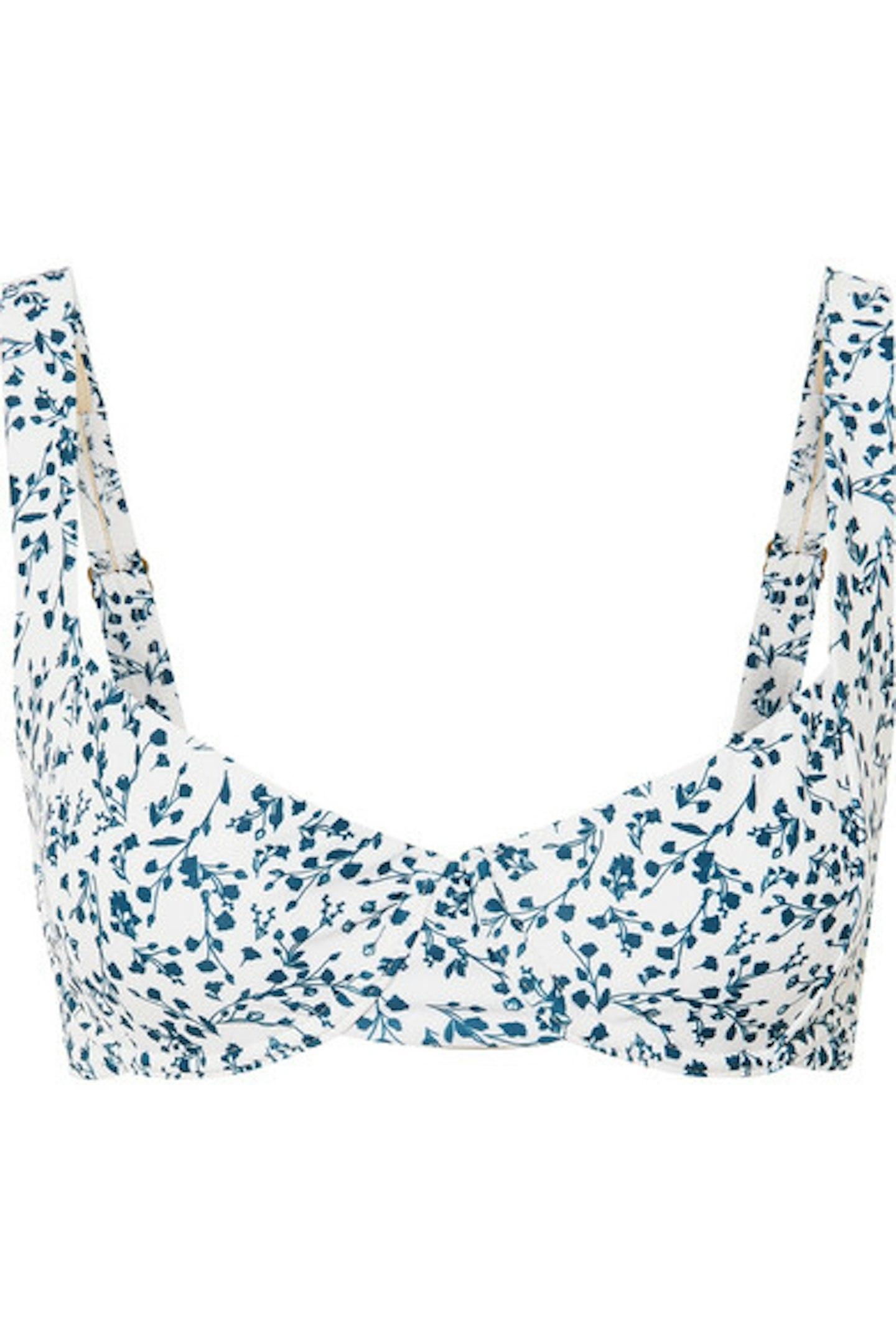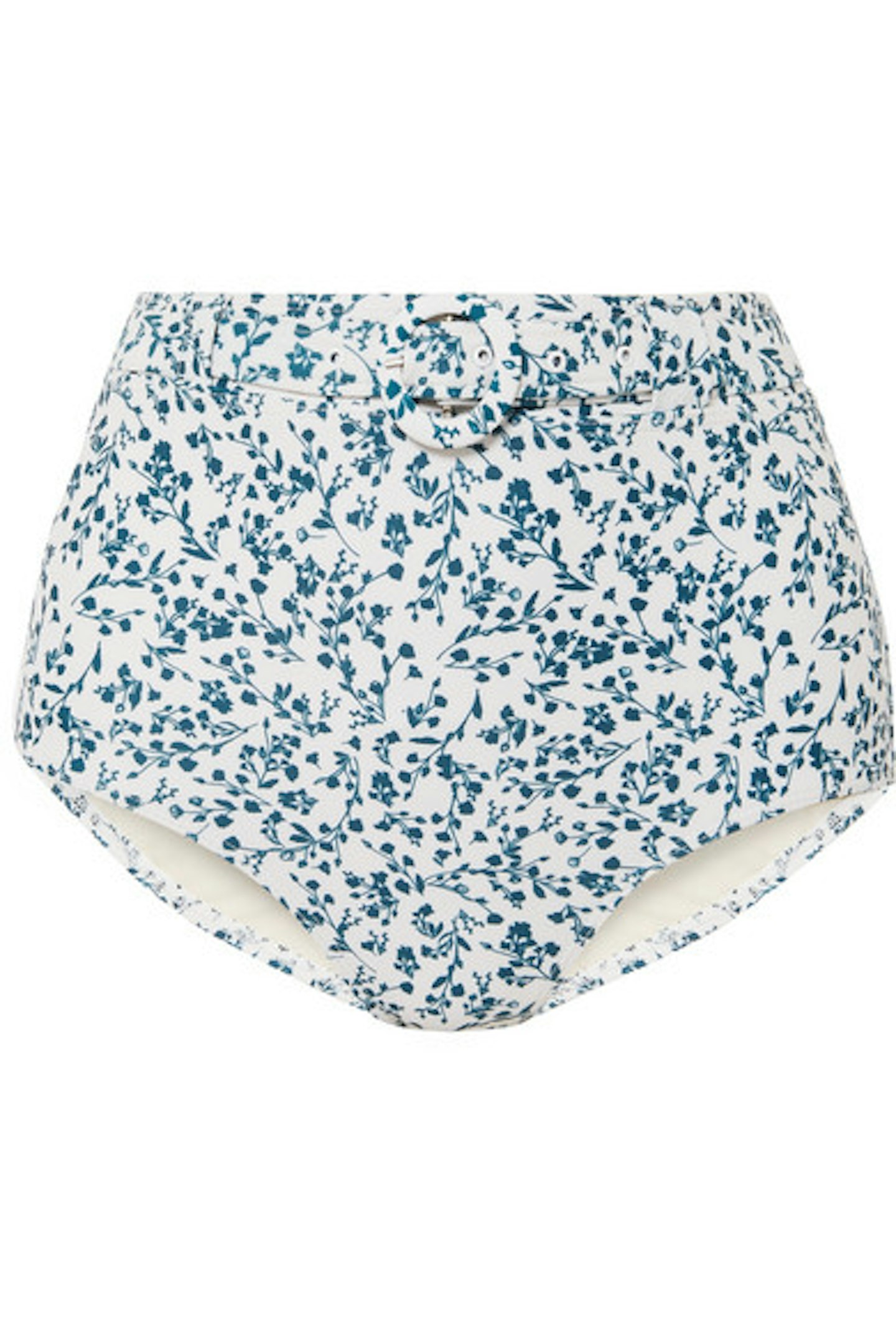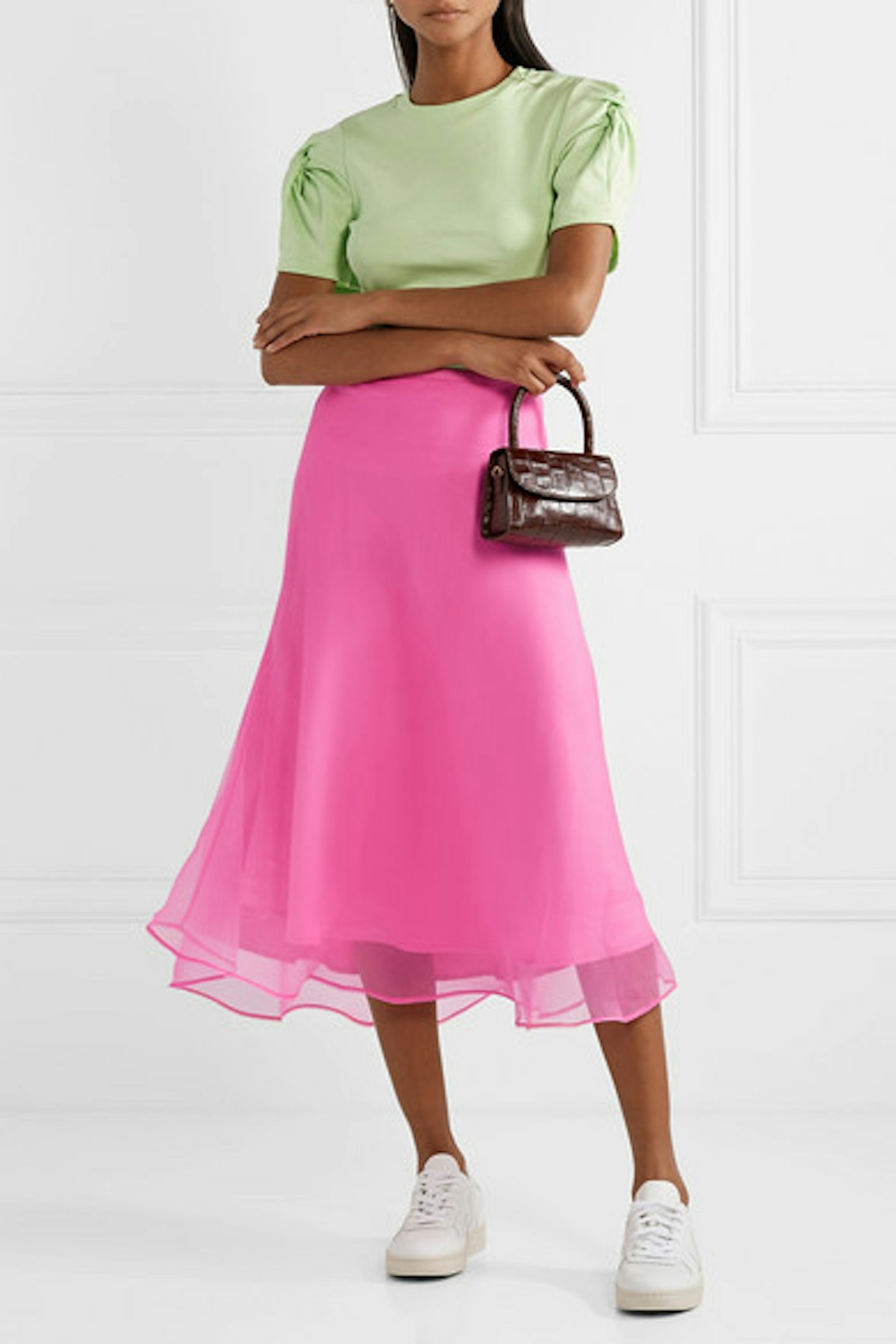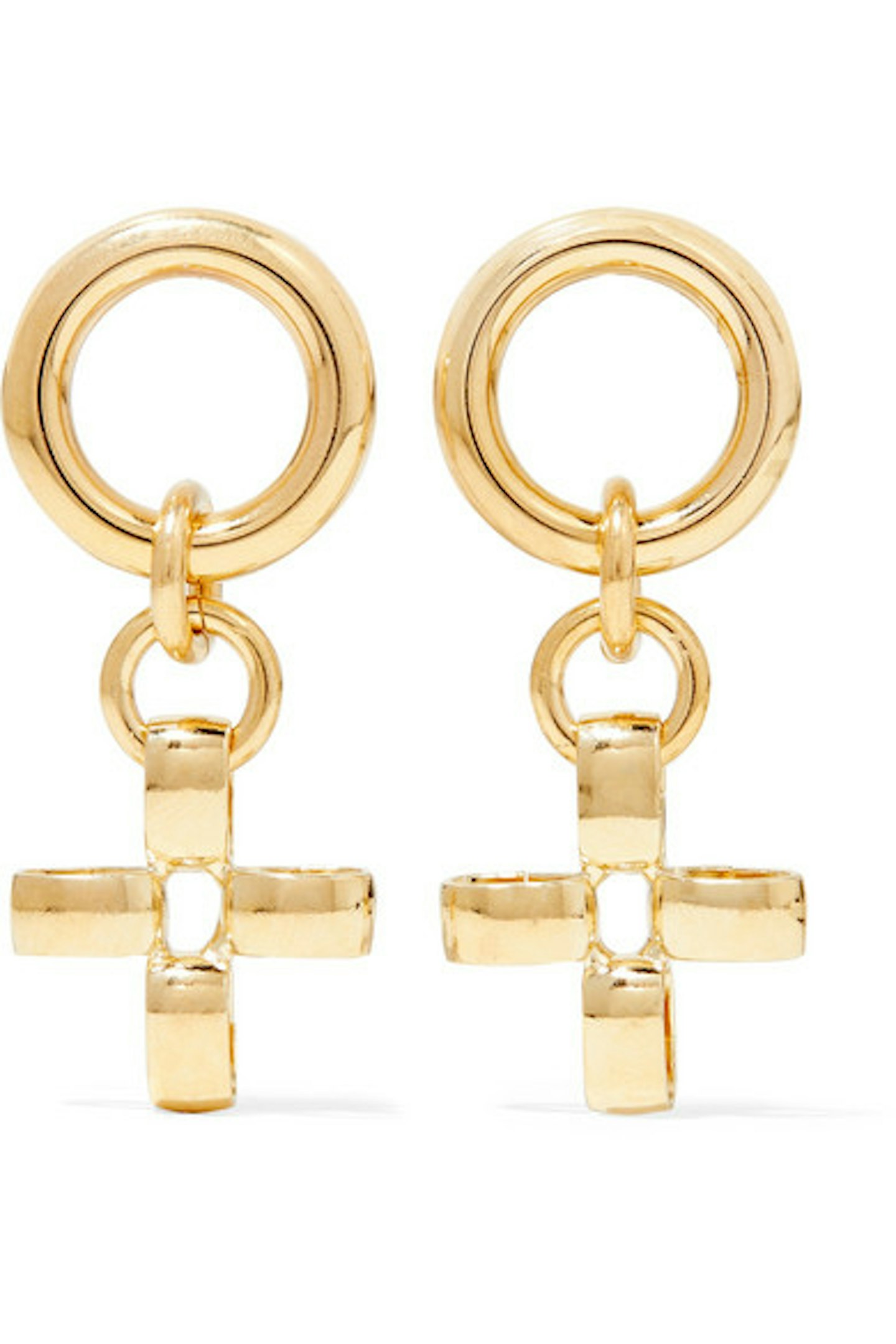Yesterday, the government rejected all proposals presented by the Environmental Audit Committee to try and help reduce fashion's impact on the environment. On the same day, Net-a-Porter launched a new platform dedicated to sustainable fashion, offering us all a way to easily identify and shop from the brands that adhere to various criteria of sustainability. Called Net Sustain, it will also feature exclusive capsule collections from the likes of Stella McCartney and Mother of Pearl.
The five categories are Locally Made, which included brands that manufactures at least half of their products in their own community or country; Reducing Waste, which celebrates products "made using regenerated or reused materials and the brands designing with circularity in mind"; Considered Processes, highlighting brands that minimize environmental impacts and ensure the health of worker and wearer; Considered Materials, which includes products made from materials cultivated in a way that takes into account the welfare of people, animals and the environment and Craft and Community, which celebrates products that showcase "unique artisan skills and brands that adhere to fair trade principles and invest in communities."
Sustainable fashion is the future or, at least, it should be. We are facing a global crisis in terms of our human impact on the planet, and the result is not simply a case of slightly warmer summers and marginally colder winters – the future looks a lot more apocalyptic than that. Average wildlife populations have dropped by 60 per cent in just 40 years, entire cities are sinking due to rising sea levels and there's more carbon dioxide in our atmosphere than at any other point during history. This makes yesterday's decision all the more worrying. In terms of the government's plans to tackle the issue, last night's Tory leadership debate didn't do much to assuage the public, 70 per cent of whom want urgent political action to tackle climate change, as reported by a poll conducted by Greener UK and the Climate Coalition.
During the televised leadership debate, 15-year old Erin Curtis from Glasgow asked the five candidates for Prime Minister if they could promise that the environment was going to be their top priority. When each failed to issue a sufficient response, Curtis wrote in The Guardian that she was not impressed: "Aren’t real leaders meant to make decisions to protect the most vulnerable people in our communities? Aren’t real leaders supposed to be brave and courageous? Aren’t real leaders ultimately supposed tell us the truth? But instead we hear them say time and time again that climate change is “important” to them, that they will make it “central to their programme” if they are in government. At the same time they continue talking about their intentions to expand airports, cut support for renewable technology and set targets that are way too far away to make a meaningful difference."
For a luxury powerhouse such as Net-a-Porter to position sustainability front and centre is certainly heartening and, hopefully, the catalyst for real change within the industry. There are high street brands, too, striving to improve their sustainable credentials, encouraged by the likes of Fashion Revolution, which assesses how transparent fashion brands are every year. Referring to the government's rejection of EAC proposals, Orsola de Castro, co-founder of Fashion Revolution said: "Despite the fact that the fashion industry is proved to pollute and exploit, the government has chosen to ignore its impact, and act like its business as usual. The onus for improvement lies firmly with governments and brands, not with consumers, and the UK government is missing an opportunity to show progressive thinking as well protecting its citizens from human and environmental exploitation."
Let's hope that Net Sustain is the start of real change throughout the industry, for as Curtis writes so eloquently: "Climate change is not an issue for tomorrow, it’s an issue of today. Today, there are people all over the world who are already suffering from the devastating consequences of our inaction: droughts, heatwaves, cyclones and wildfires. Today, we’re seeing how countries are treating immigrants and those seeking asylum with intolerance and hatred. Today, we’re seeing the loss of thousands of species of plants and animals, yet those in positions of power continue to absolve their responsibilities."
SHOP: 10 Of The Best Buys From Net Sustain
10 Of The Best Buys From Net Sustain
 1 of 10
1 of 10Mother of Pearl + Net Sustain, Faux Pearl-Embellished High-Rise Tapered Jeans, £250
 2 of 10
2 of 10Veja + Net Sustain, Rubber-Trimmed Leather Sneakers, £100
 3 of 10
3 of 10Maggie Marilyn + Net Sustain, Knotted Silk-Twill Midi Dress, £440
 4 of 10
4 of 10Peony + Net Sustain, Floral-Print Underwired Bikini Top, £110
 5 of 10
5 of 10Peony + Net Sustain, Floral-Print Belted Bikini Briefs, £110
 6 of 10
6 of 10Nannacay + Net Sustain, Macramé Tote, £110
 7 of 10
7 of 10Mara Hoffman + Net Sustain, Printed Organic Linen Maxi Dress, £390
 8 of 10
8 of 10Maggie Marilyn + Net Sustain, Silk-Organza Midi Skirt, £310
 9 of 10
9 of 10Laura Lombardi + Net Sustain, Gold-Tone Earrings, £134
 10 of 10
10 of 10